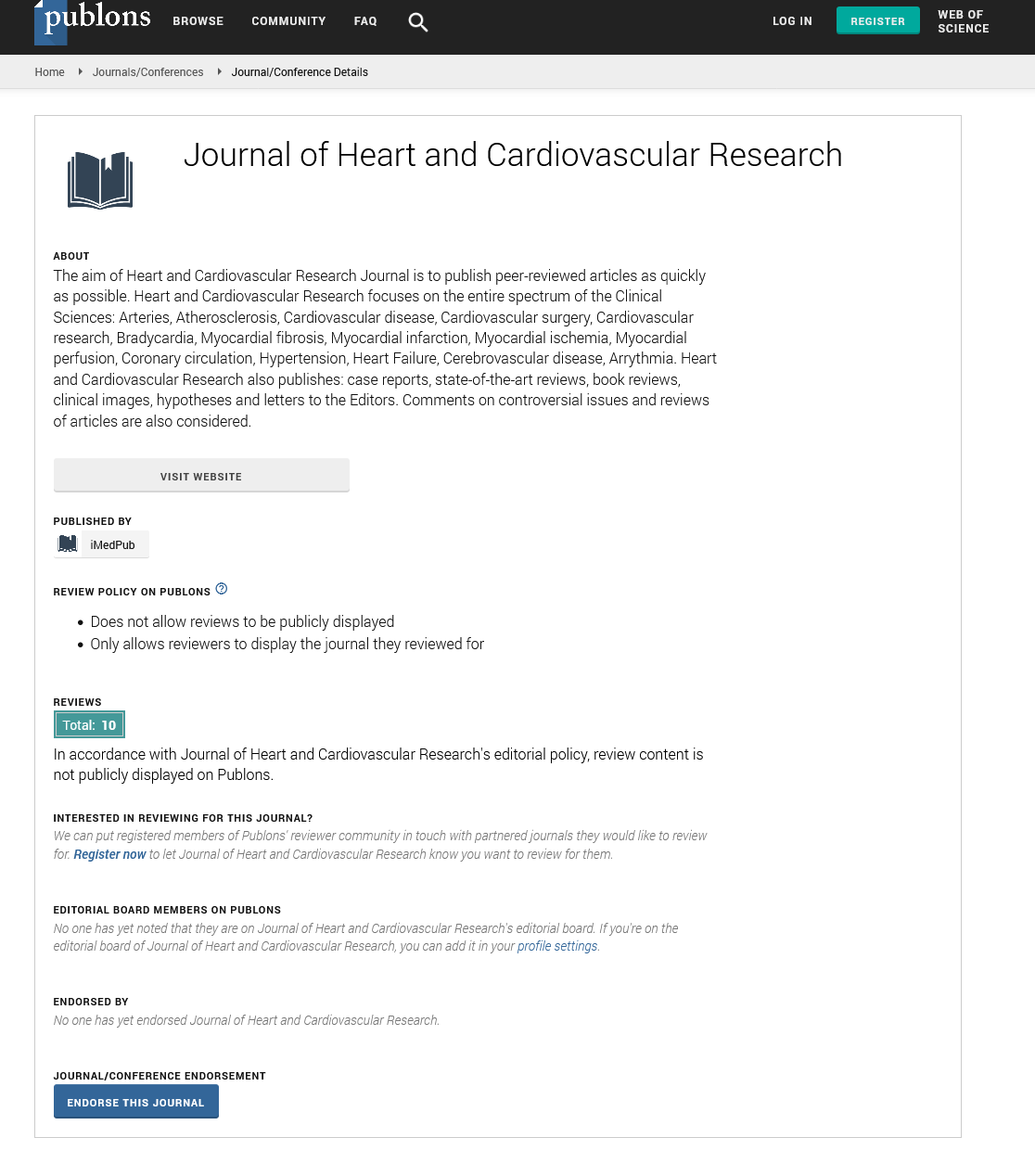ISSN : ISSN: 2576-1455
Journal of Heart and Cardiovascular Research
Abstract
Cardiology 2019: Metabolic and cardiovascular benefits of pancreas transplantation - Hossein Tabriziani - Balboa Institute of Transplantation
Diabetes mellitus is one of the most prevalent and morbid chronic diseases and not only affecting the health of millions of persons worldwide but also cause a huge global burden of disease.Unfortunately, the global prevalence of diabetes has increased substantially at the rate of more than 3% per year. These diseases significantly influence the patient survival, quality of life and development of organ system degeneration. Epidemiological studies have shown increased mortality in diabetic patients, with cardiovascular mortality being on the top with about 30-fold increase when compared to the normal population. One of the key features of cardiovascular disease in these patients is cardiovascular autonomic neuropathy. This condition may be present in up to 60% of patients after 15 years and is an independent risk factor for cardiovascular mortality and increased blood pressure. Also lacking good glycemic control will cause micro vascular complication by direct oxidative stress an injury, which decrease the viability of the vessel wall cells and is major factor in developing hypertension. A successful pancreas transplantation combined with a kidney graft has been found to prevent diabetic kidney lesions and improved long-term patient survival with significant reduction in cardiovascular mortality. Also, a successful single pancreas transplant, which is generally performed in patients with near-normal kidney function, has shown to improve left ventricular function and delay the development of retinopathy and neuropathy.Pancreas transplantation can improve cardiovascular risk profiles, improve cardiac function and decrease cardiovascular events. These results are not only decreasing the morbidity and mortality of the pancreas recipient but also drastically improving their quality of life. Without any doubt; restoration of the lost beta cell mass by pancreas transplantation is the treatment of choice for type-1 diabetic patients in most cases. Successful pancreas transplantation normalizes the metabolic alterations of diabetes and can slow the progression, stabilize and even favour the regression of secondary complications of the disease, including those at the cardiovascular level.
During the previous decades, pancreas transplantation (PTX) has developed into a strategy for the most part saved for type 1 diabetes patients experiencing at the same time kidney transplantation, in spite of the fact that it has additionally been proceeded as a seclude method. Critically, it has altogether improved diabetes related personal satisfaction just as future when contrasted with kidney just beneficiaries. Be that as it may, there is a scarcity of distributions as identified with the endocrine follow-up assessment and the board to this populace of diabetic patients after pancreas transplantation.We have included just English composed articles, and we have attempted to organize planned examinations. Be that as it may, because of the absence of accessible information concerning pancreas transplantation and metabolic variations from the norm, we have additionally included review, transversal and case reports studies.Diabetes and other metabolic anomalies have much of the time been seen after PTX, which can impact its drawn out results. These scatters have been identified with different factors, for example, immunosuppressive medication symptoms, incessant dismissal, and beneficiary way of life after transplantation. Early acknowledgment of these variations from the norm can accommodate increasingly helpful treatment. .
Author(s): Hossein Tabriziani
Abstract | PDF
Share This Article
Google Scholar citation report
Citations : 34
Journal of Heart and Cardiovascular Research received 34 citations as per Google Scholar report
Journal of Heart and Cardiovascular Research peer review process verified at publons
Abstracted/Indexed in
- Google Scholar
- Sherpa Romeo
- China National Knowledge Infrastructure (CNKI)
- Publons
Open Access Journals
- Aquaculture & Veterinary Science
- Chemistry & Chemical Sciences
- Clinical Sciences
- Engineering
- General Science
- Genetics & Molecular Biology
- Health Care & Nursing
- Immunology & Microbiology
- Materials Science
- Mathematics & Physics
- Medical Sciences
- Neurology & Psychiatry
- Oncology & Cancer Science
- Pharmaceutical Sciences
